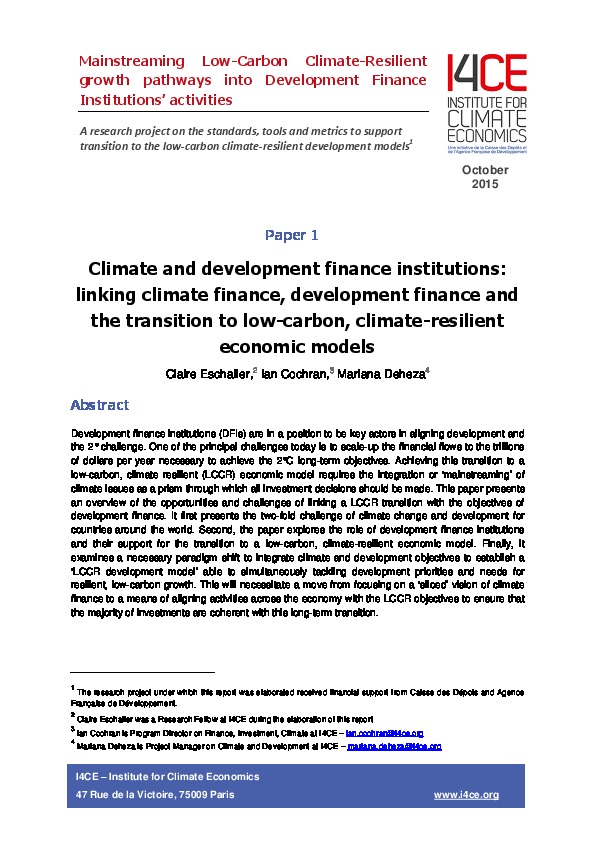Climate and development finance institutions
Climate and development finance institutions: linking climate finance, development finance and the transition to low-carbon, climate-resilient economic models
Paper one in I4CE’s research project on the standards, tools and metrics to support the mainstreaming of ‘Low-Carbon Climate-Resilient’ growth pathways into activites of development finance institutions.
Abstract
Development finance institutions (DFIs) are in a position to be key actors in aligning development and the 2° challenge. One of the principal challenges t oday is to scale-up the financial flows to the trillions of dollars per year necessary to achieve the 2°C lo ng-term objectives. Achieving this transition to a low-carbon, climate resilient (LCCR) economic model requires the integration or ‘mainstreaming’ of climate issues as a prism through which all investment decisions should be made. This paper presents an overview of the opportunities and challenges of linking a LCCR transition with the objectives of development finance. It first presents the two-fold challenge of climate change and development for
countries around the world. Second, the paper explores the role of development finance institutions and their support for the transition to a low-carbon, climate-resilient economic model. Finally, it examines a necessary paradigm shift to integrate climate and development objectives to establish a ‘LCCR development model’ able to simultaneously tackling development priorities and needs for resilient, low-carbon growth. This will necessitate a move from focusing on a ‘siloed’ vision of climate finance to a means of aligning activities across the economy with the LCCR objectives to ensure that the majority of investments are coherent with this long-term transition.
The research project under which this paper was elaborated received financial support from Caisse des Dépots and Agence Française de Développement during its first phase. The research presented in this publication was carried out by I4CE on an independent basis. CDC group and AFD are not liable under any circumstances for the content of this publication.
